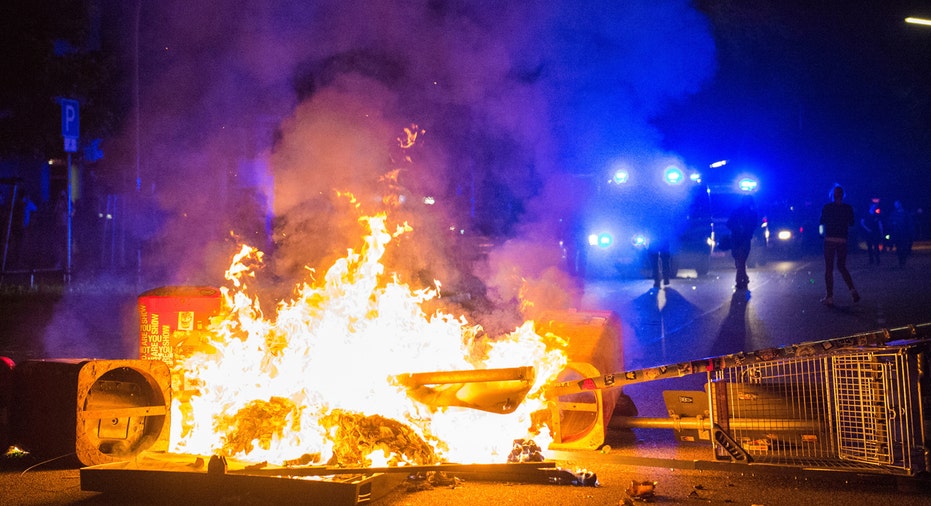Activists riot against G-20 summit for 3rd night in Hamburg

Anti-globalization activists rioted for a third consecutive night in Hamburg early Sunday even after Group of 20 leaders had already left the port city in northern Germany.
Police again used water cannon trucks against rioters attacking them with iron rods and pavement stones. They arrested 186 protesters and temporarily detained another 225 people. Officials say 476 officers have been injured in the violence since Thursday. The number of injured protesters wasn't clear.
Foreign Minister Sigmar Gabriel condemned the violence, saying "Germany's reputation is severely affected internationally by the events in Hamburg."
Gabriel told the Bild am Sonntag newspaper that a Europe-wide investigative team should search for suspects.
Hamburg's police president Ralf Meyer told reporters at a news conference that while he was proud of the 20,000 police officers who managed to provide security for the many international leaders and their delegations, it was deplorable that so many of them were injured and that the violent riots couldn't be prevented.
The city's interior minister said they hadn't expected this kind of brutality by leftist extremists.
"We had to deal — detached from the actual events at the summit — with ruthless acts of violence by criminals," Andy Grote said.
The city's officials reiterated that those who suffered from the destruction would quickly receive financial support from the government. Cars were torched, stores looted, bikes burned in street barricades and windows smashed during the three-day violence.
The overwhelming majority of the tens of thousands who took to the streets protested peacefully against the G-20 summit, demanding quicker action against global warming and more help for refugees.
The summit, which took place on Friday and Saturday, was hosted by German Chancellor Angela Merkel. Guests included President Donald Trump, Russian President Vladimir Putin and many other international leaders who held talks on contentious issues like climate, trade, terrorism and migration.



















